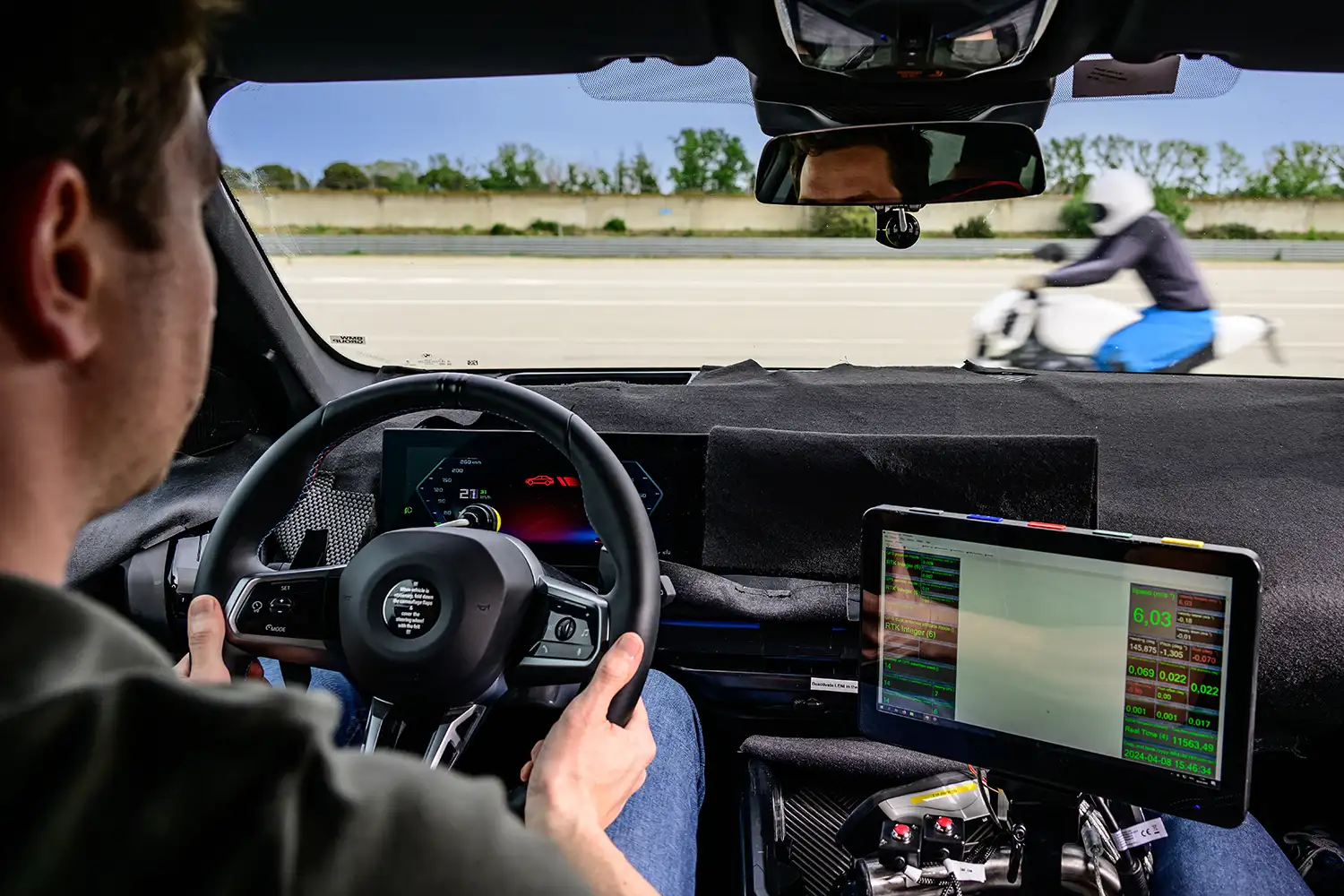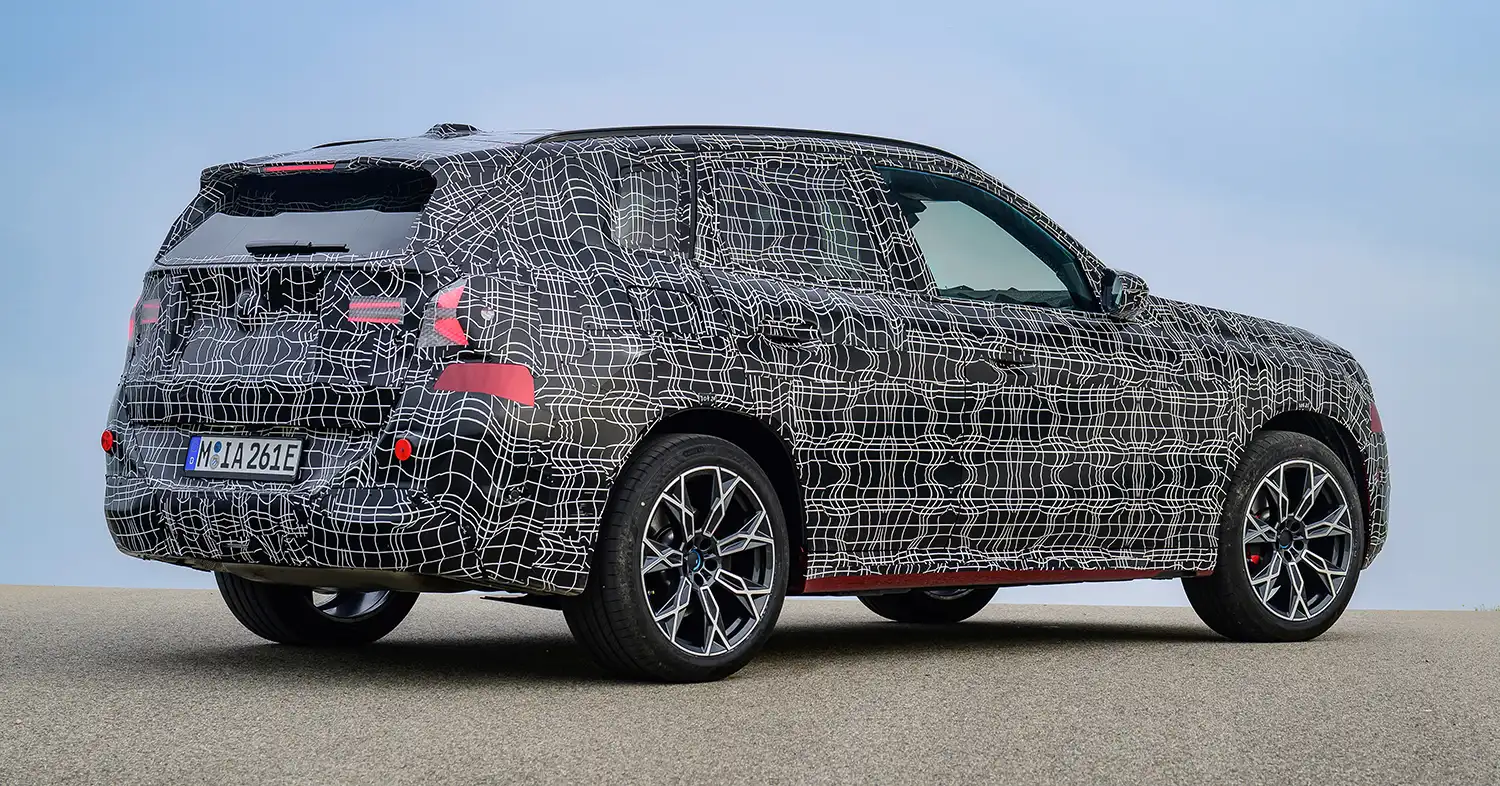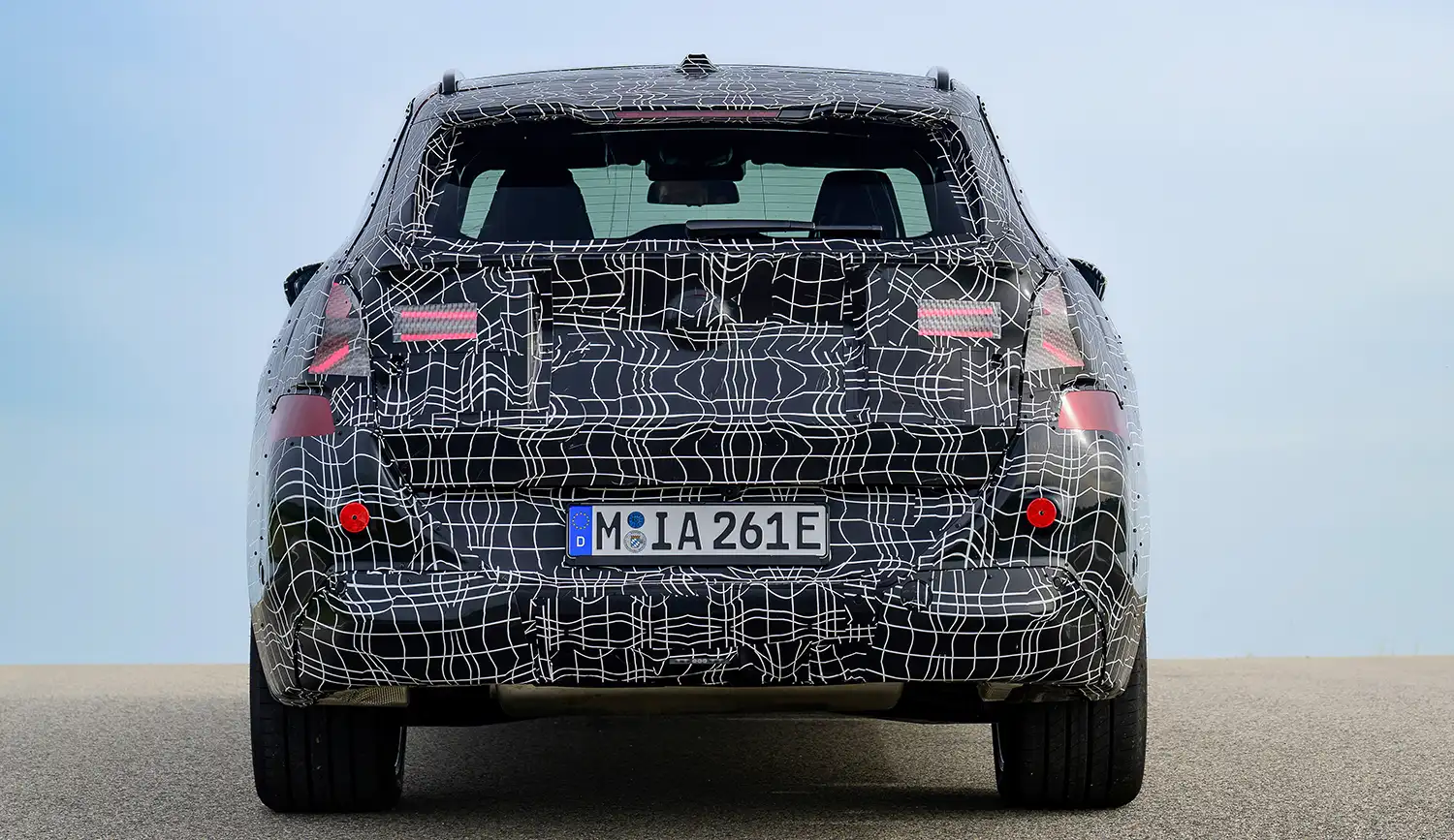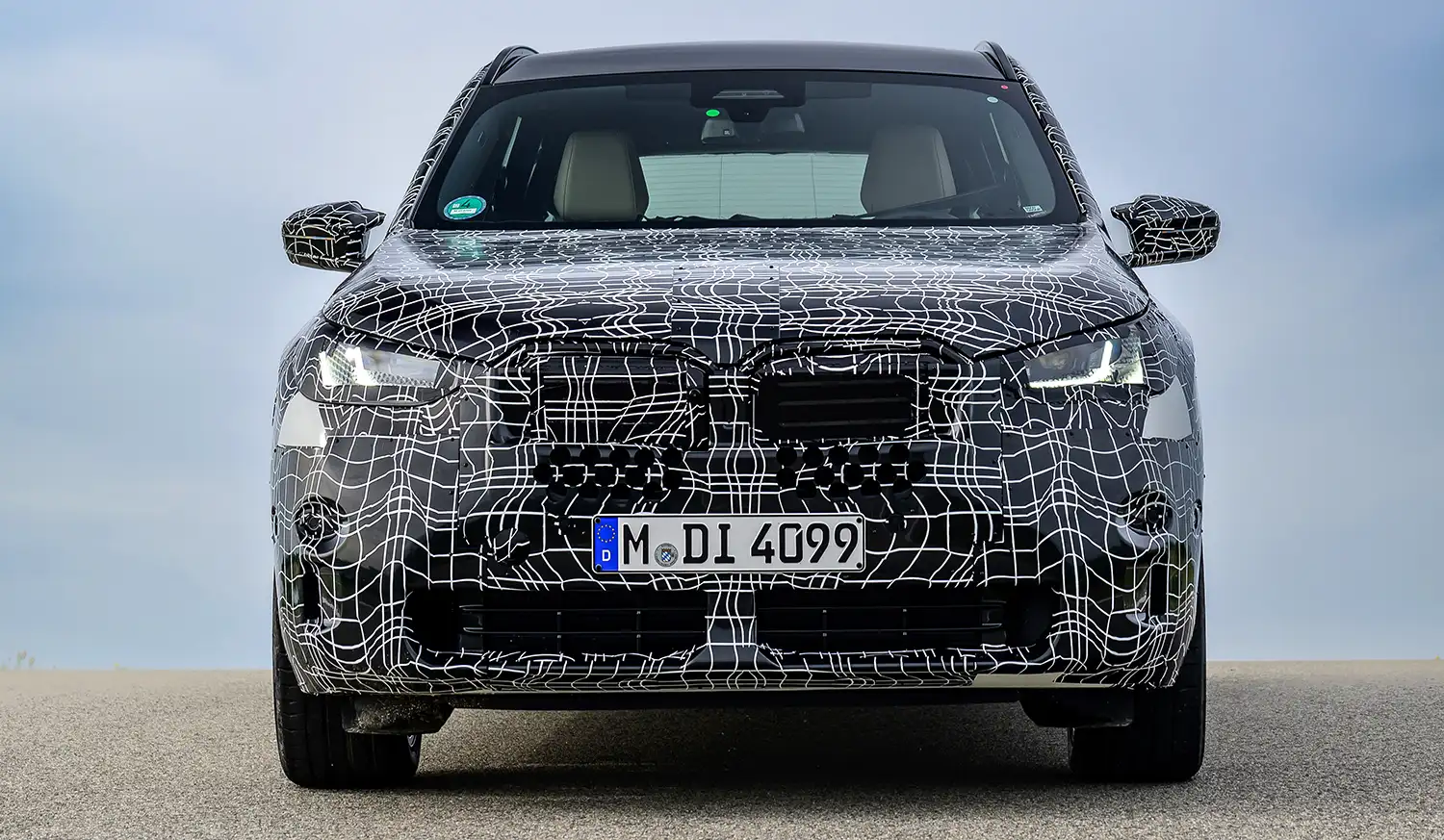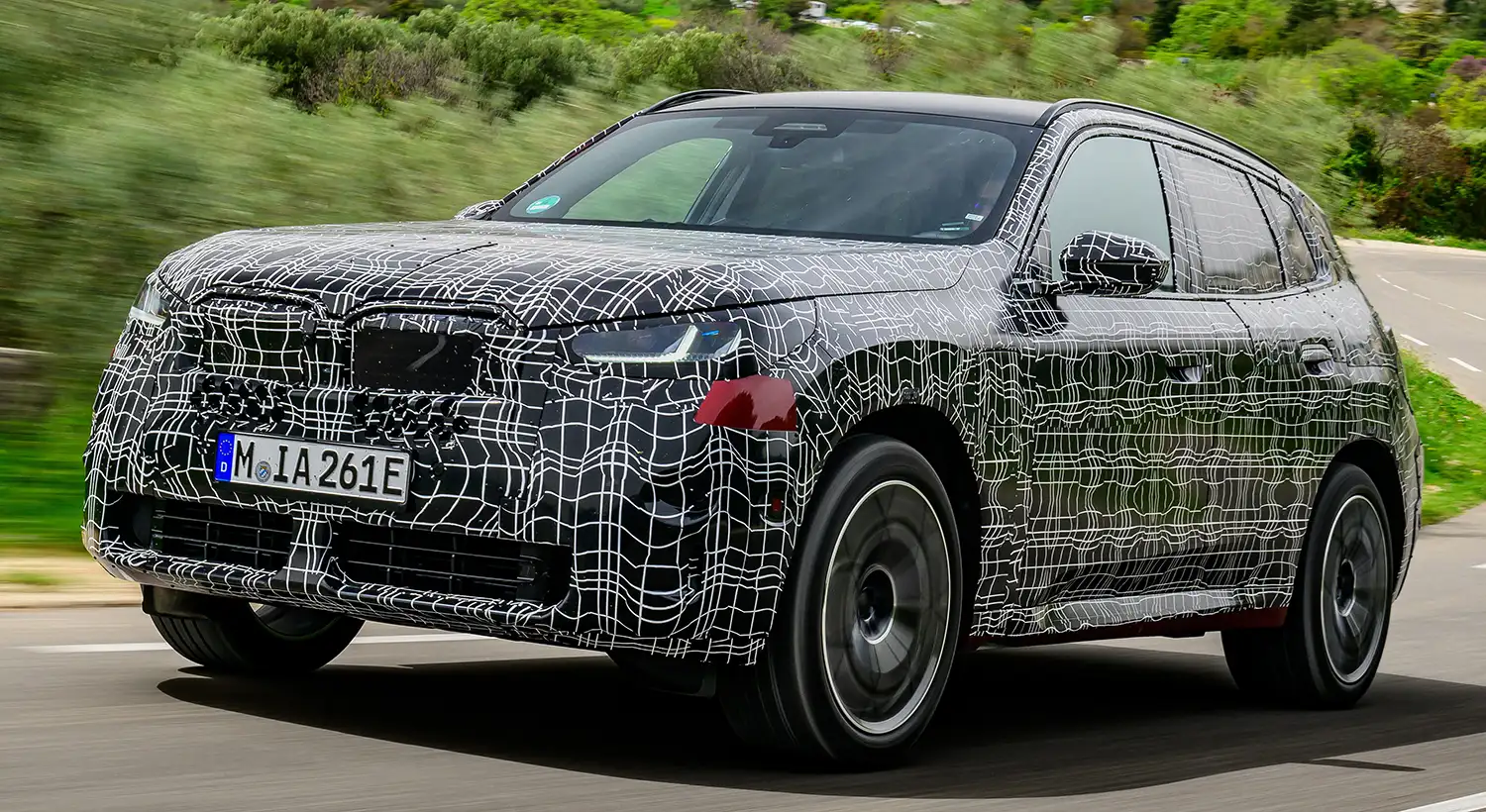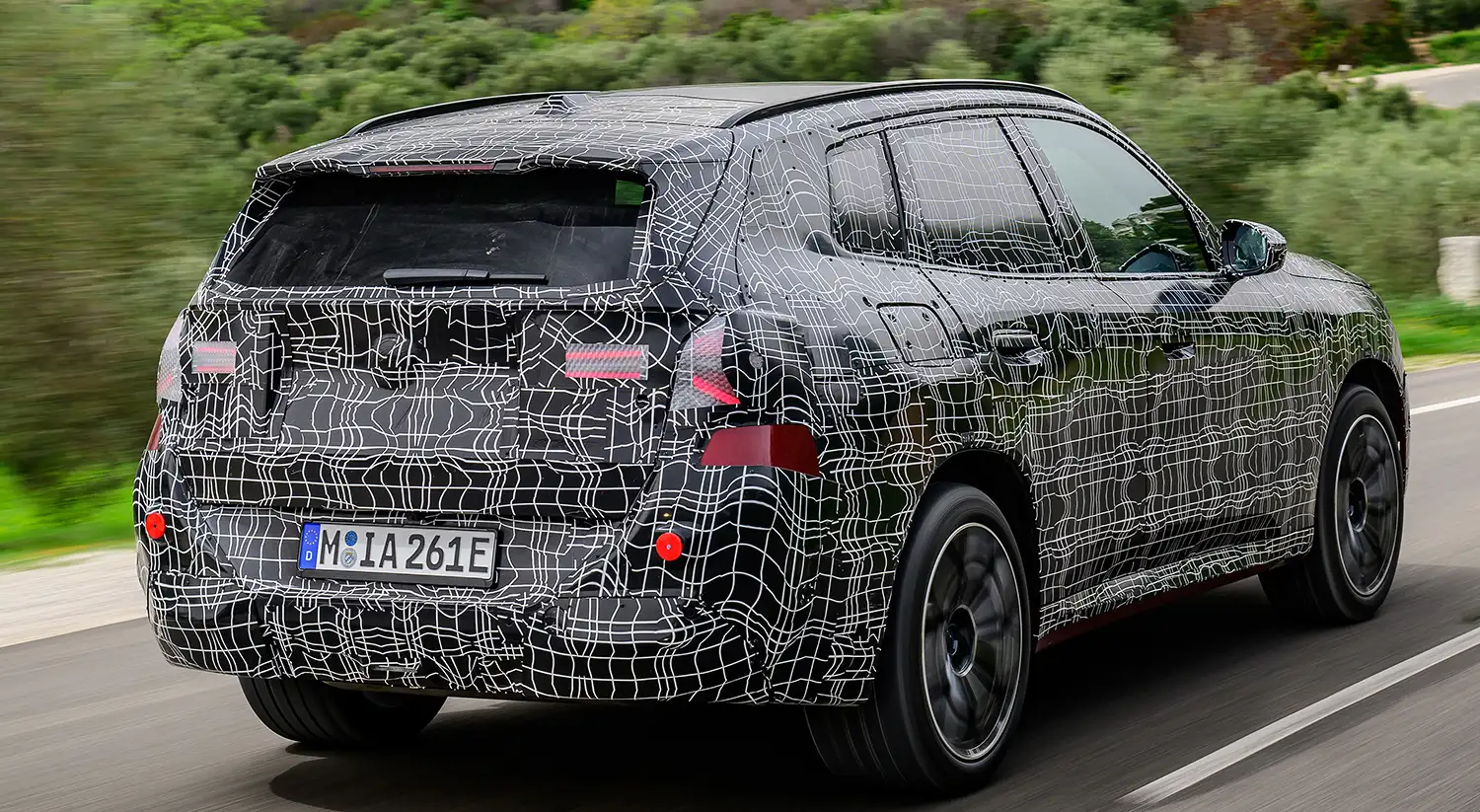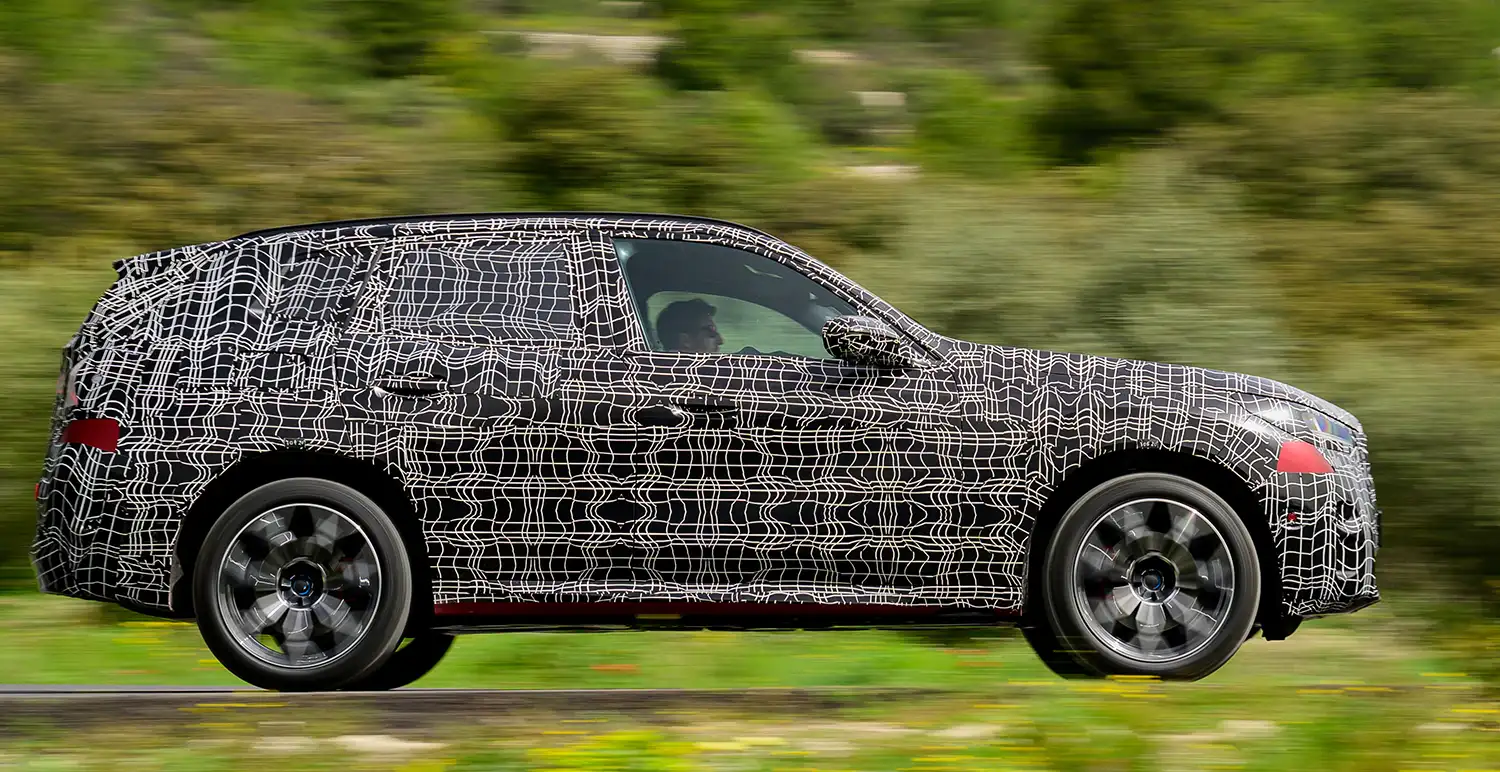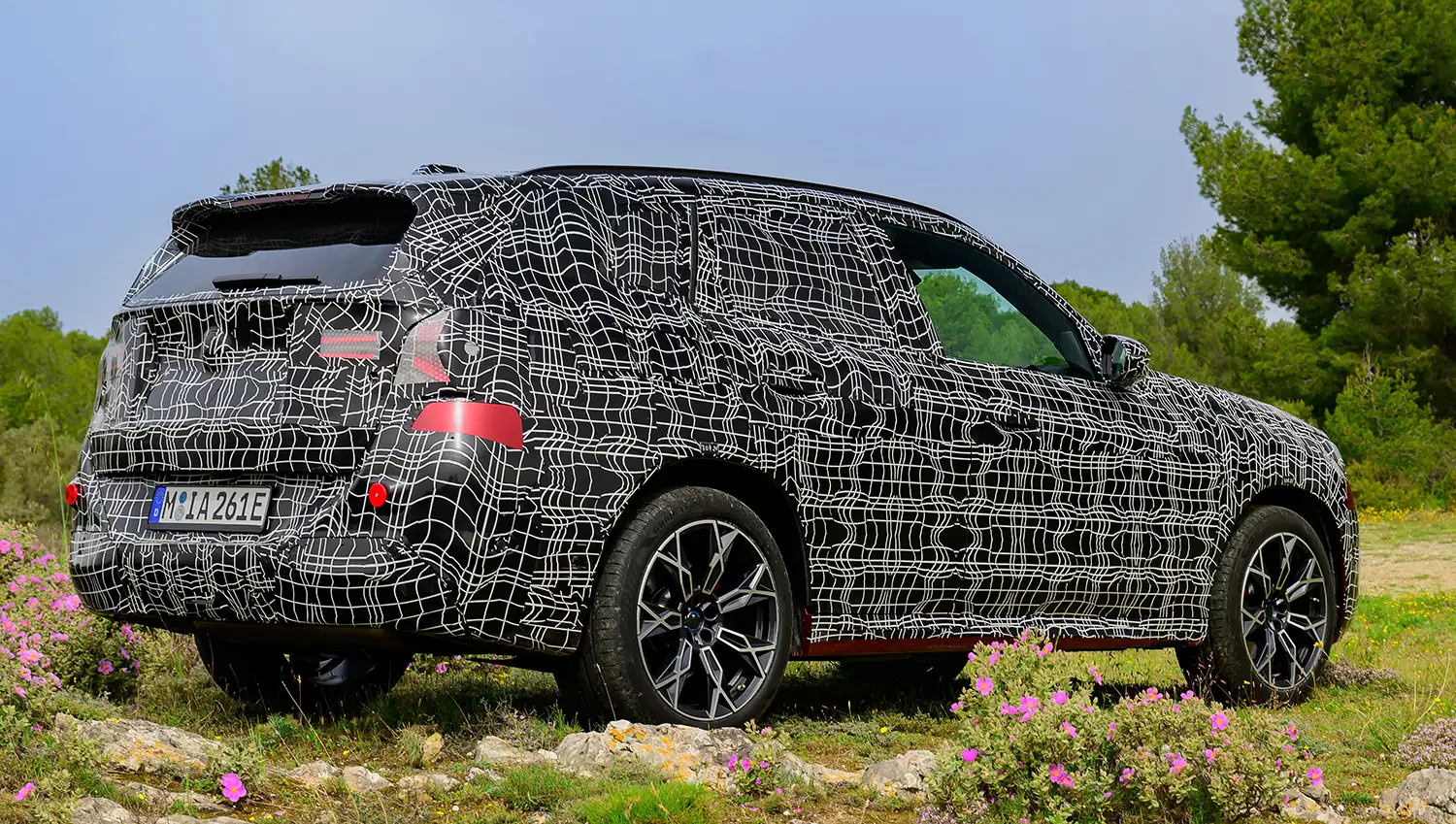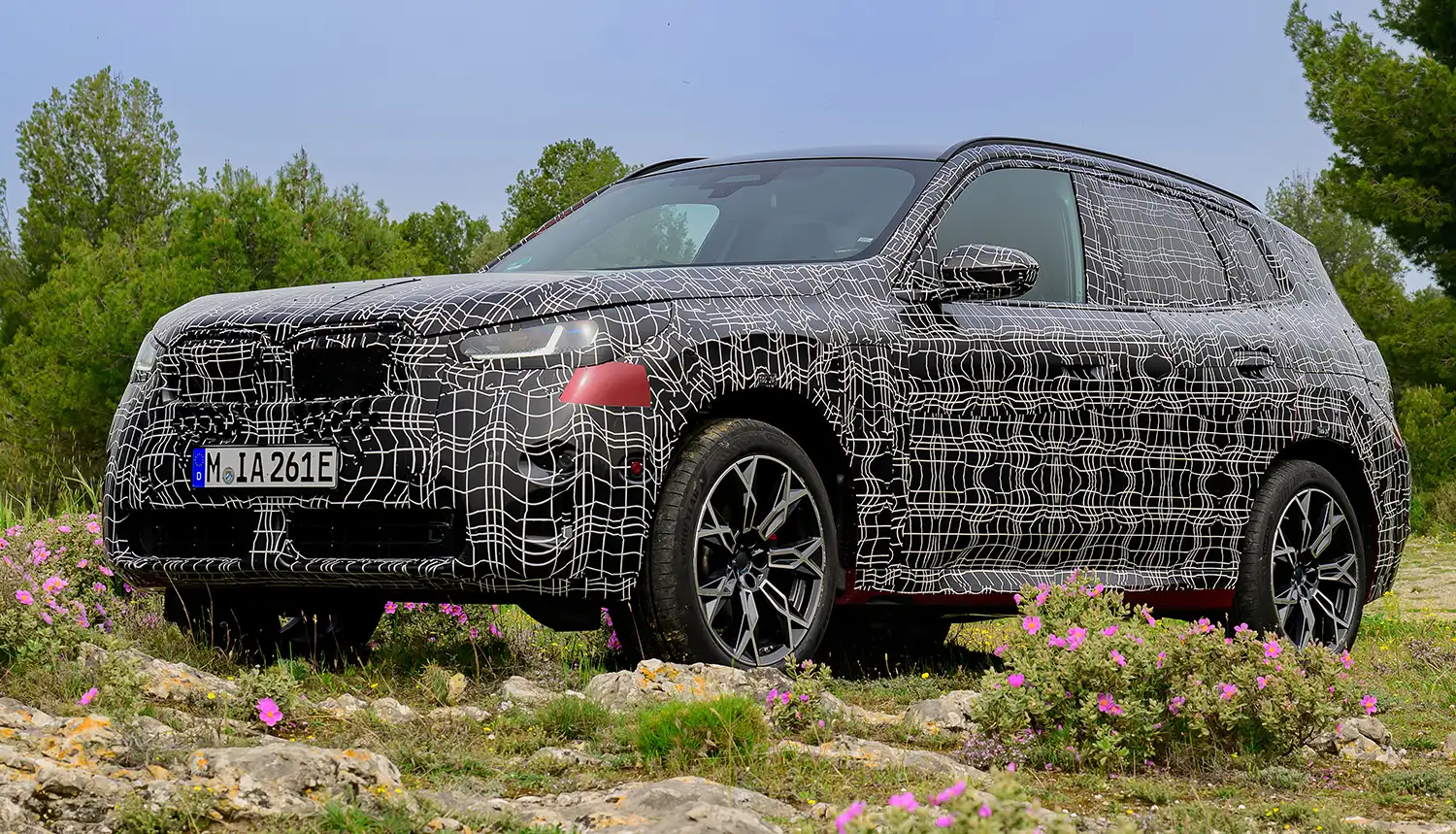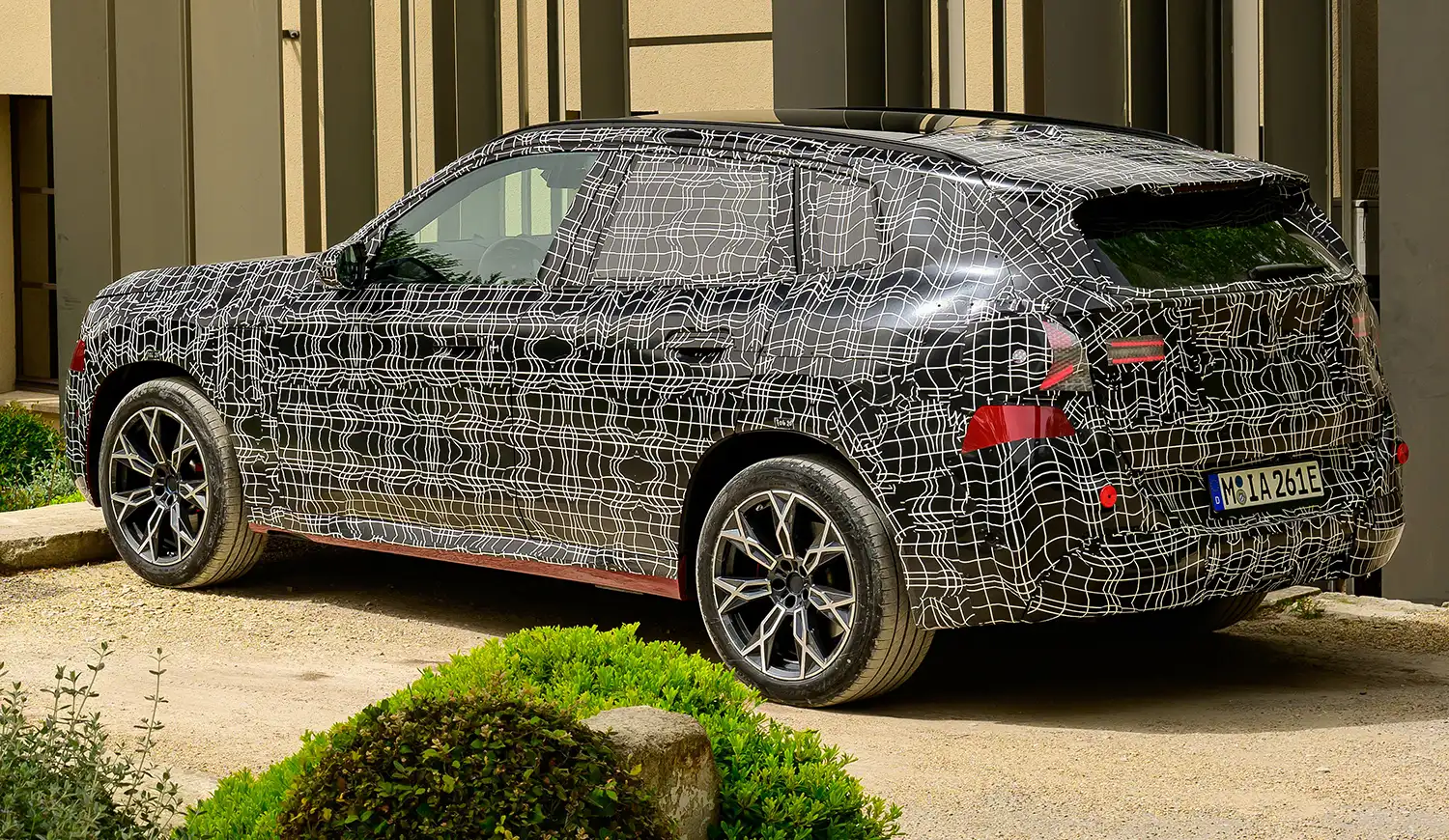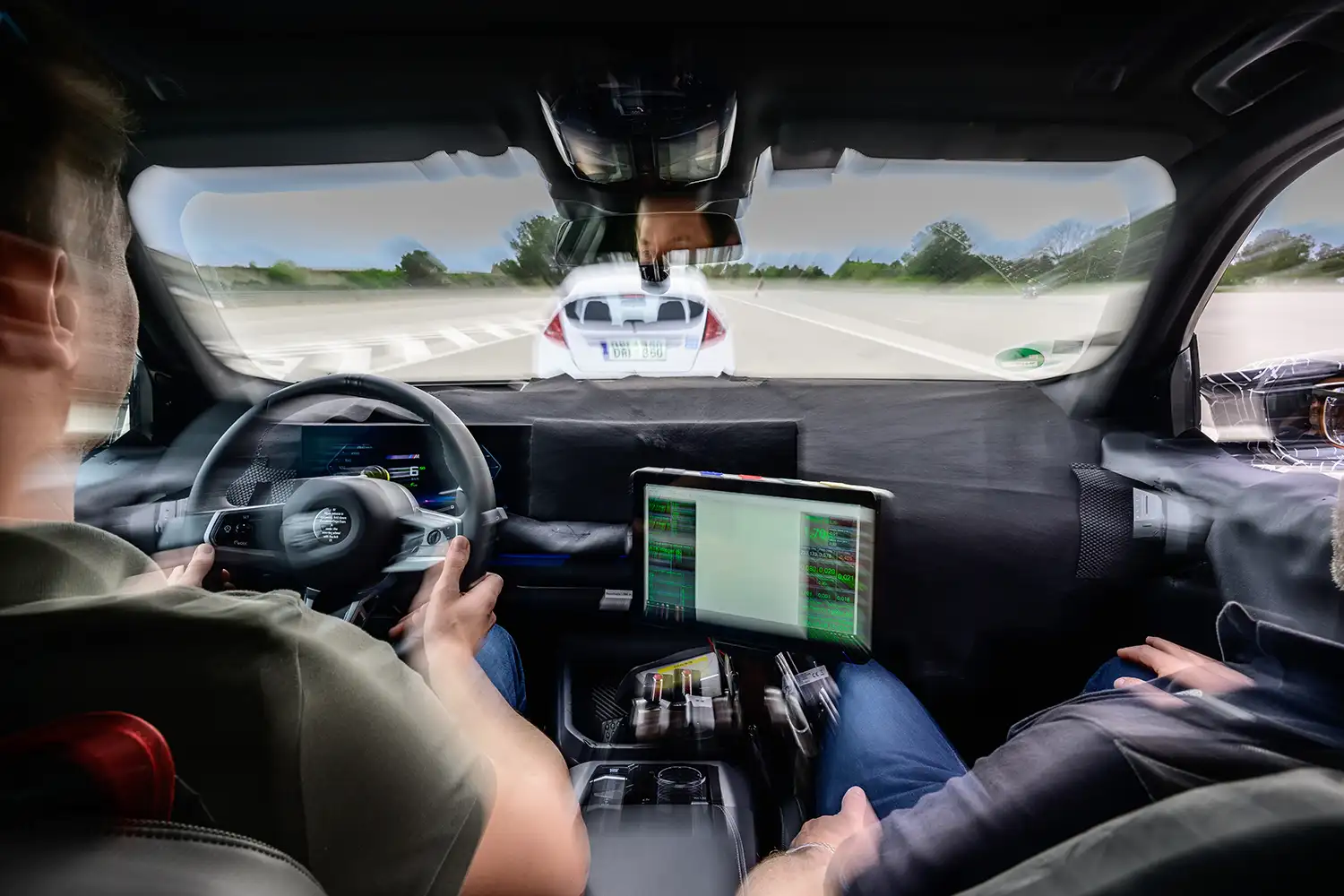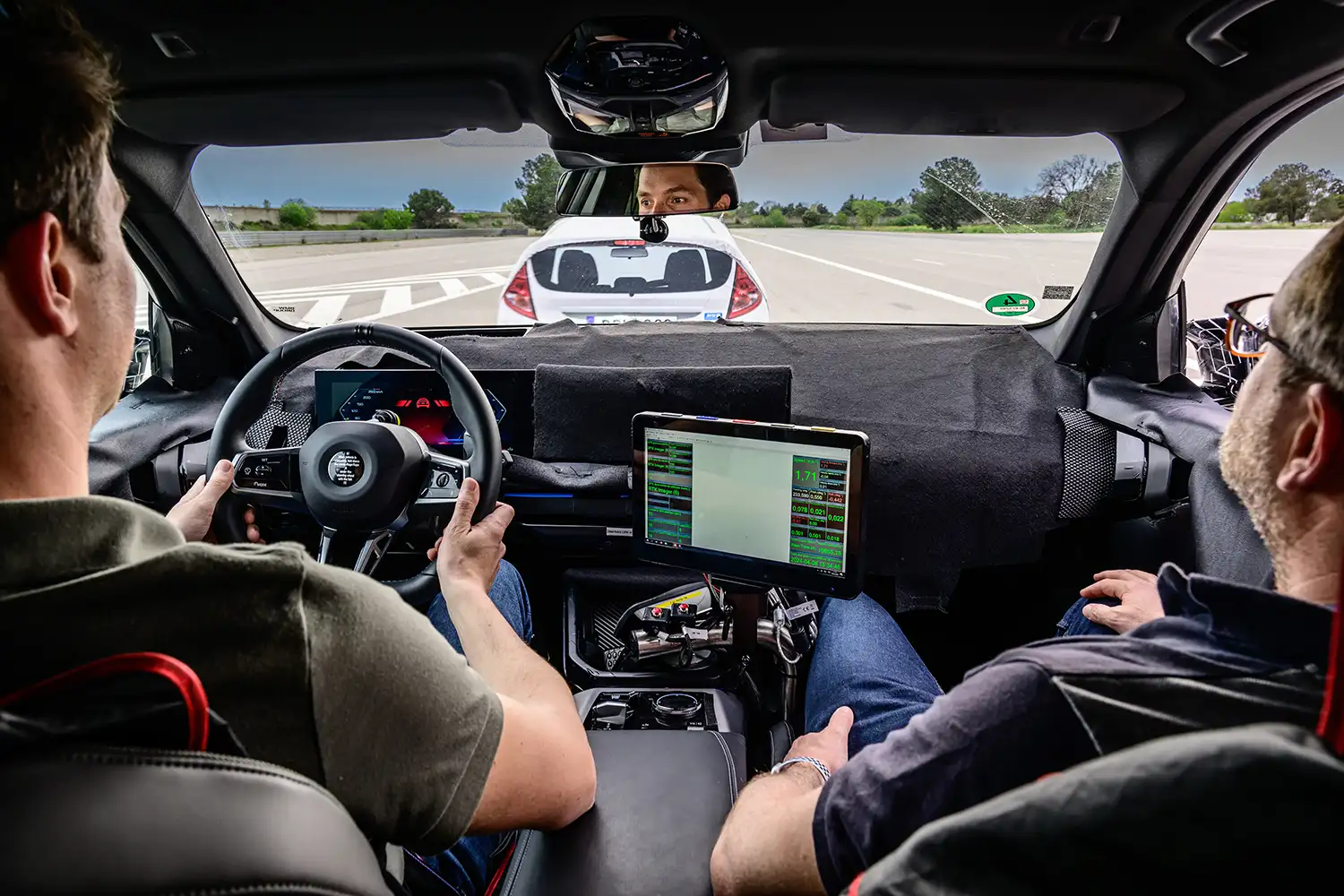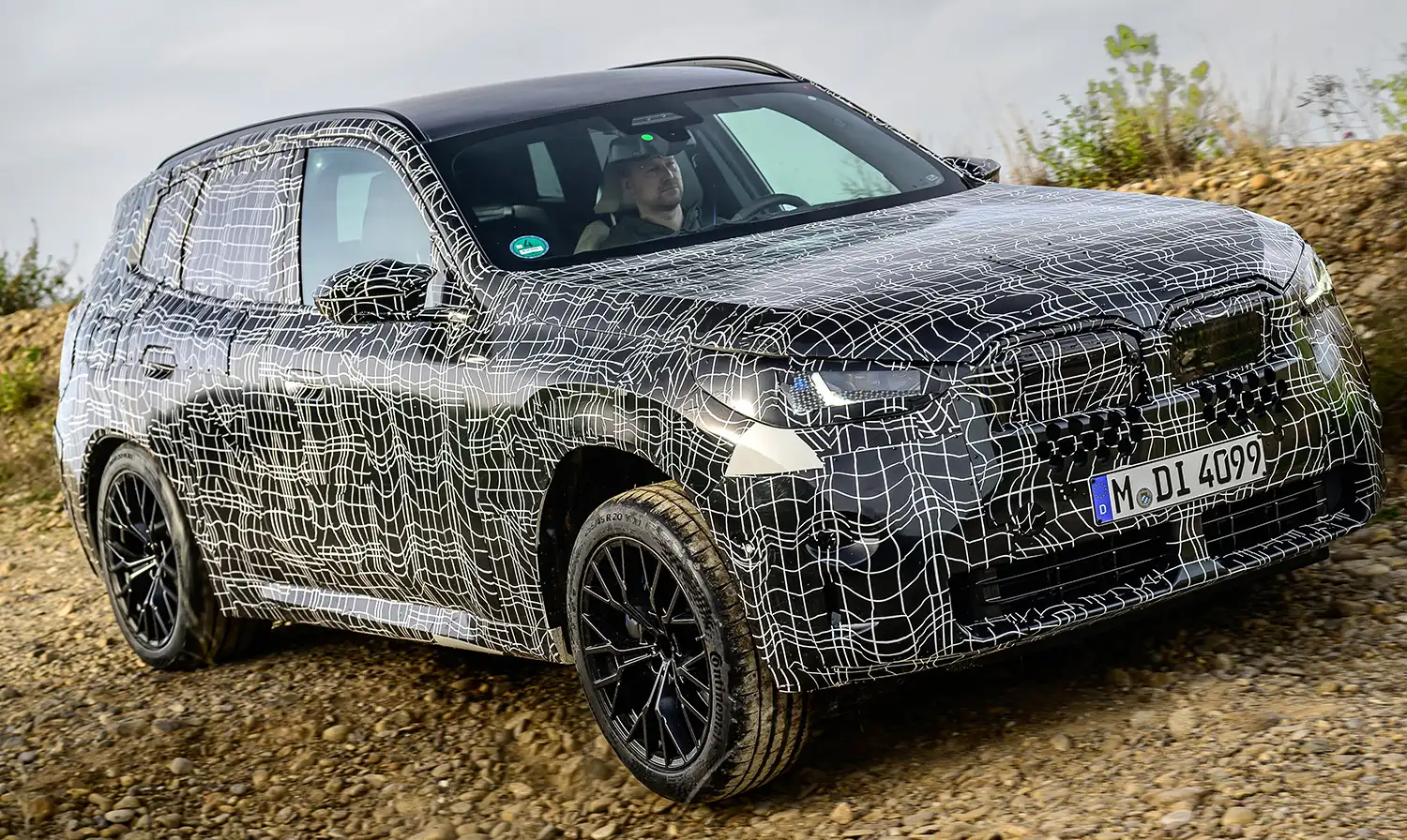
At the end of series development, the new BMW X3 undergoes final tuning of all chassis control and driver assistance systems at the BMW Group test centre in Miramas, southern France. The fourth generation of the Sports Activity Vehicle (SAV) in the premium mid-range vehicle segment will be presented in a few weeks’ time with both highly efficient combustion engines and an advanced plug-in hybrid drive. The development and test engineers ensure that all model variants of the new BMW X3, regardless of drive concept and weight, demonstrate superior handling in every situation with an intensive tuning programme. The well-coordinated functionality of all automated driving and parking systems in the new BMW X3 also contributes to a harmonious customer experience.
The new BMW X3 has already undergone extensive testing on snow and ice, in extremely hot regions and off-road on its way to series production. The SAV’s suitability for everyday use and travelling was tested and refined in urban stop-and-go traffic as well as on winding country roads, highways and selected race tracks.

Perfectly coordinated systems for a typical BMW driving experience.
The development engineers use the versatile test track in Miramas to put the finishing touches to the driving experience of the new BMW X3. In addition to an asphalt oval and a highway ring, there are also slalom, serpentine and circular tracks as well as off-road courses and handling courses with different road surfaces. This allows the longitudinal and lateral acceleration, suspension and damping, steering precision and braking behaviour of the new BMW X3 to be analysed and optimised down to the last detail.
The driving dynamics and efficiency of the new BMW X3 benefit from intelligent lightweight construction and optimised aerodynamic properties. With a drag coefficient (Cd) of 0.27, it sets new standards in its competitive environment.
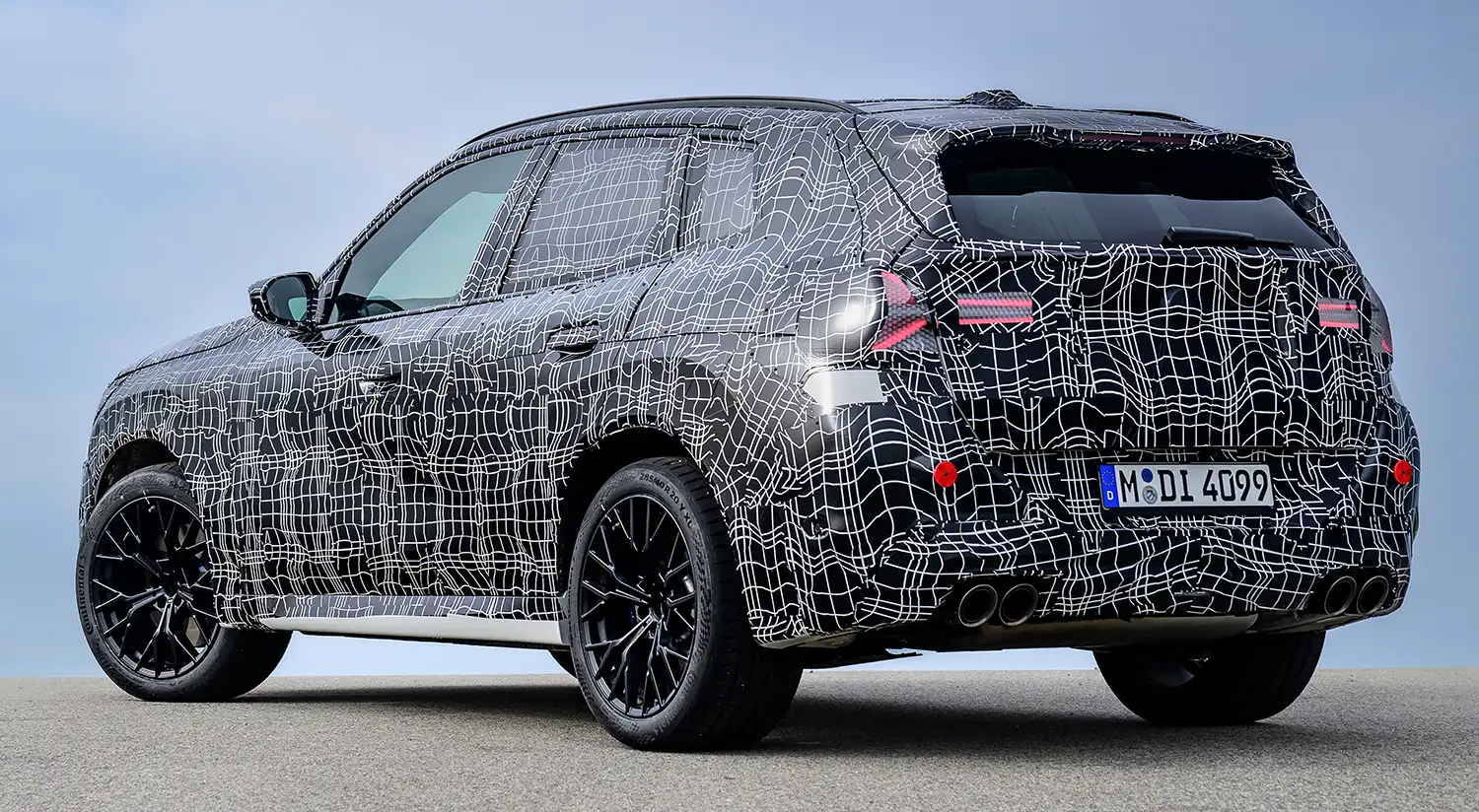
Compared to its predecessor, the new BMW X3 also has a wider track and reduced lift at the rear axle. In addition, the rigidity of the body and the chassis connection has been increased. Targeted improvements to the kinematics and elastokinematics of both axles, combined with a 19 per cent increase in the caster of the front wheels, ensure noticeably improved directional stability. A more direct steering ratio enhances steering comfort, while extensively modified anti-roll bars improve cornering dynamics without compromising ride comfort.
An Adaptive Chassis with electronically controlled shock absorbers is available as an option for the new BMW X3. The final tuning is part of the driving dynamics test at Miramas and offers two maps that can be selected via My Modes. In addition, the new version of the SAV comes as standard with the latest version of BMW Lateral Dynamics Management, which ensures precise control of the required steering torques, the actuator-based wheel slip limitation and the yaw torque distribution of Performance Control, adapted to the driving situation at all times.
Thanks to BMW’s unique development expertise, all components and systems of the drive and chassis technology are perfectly matched. The result is the characteristic combination of precision, sovereignty and versatility that characterises the driving experience in a BMW SAV.
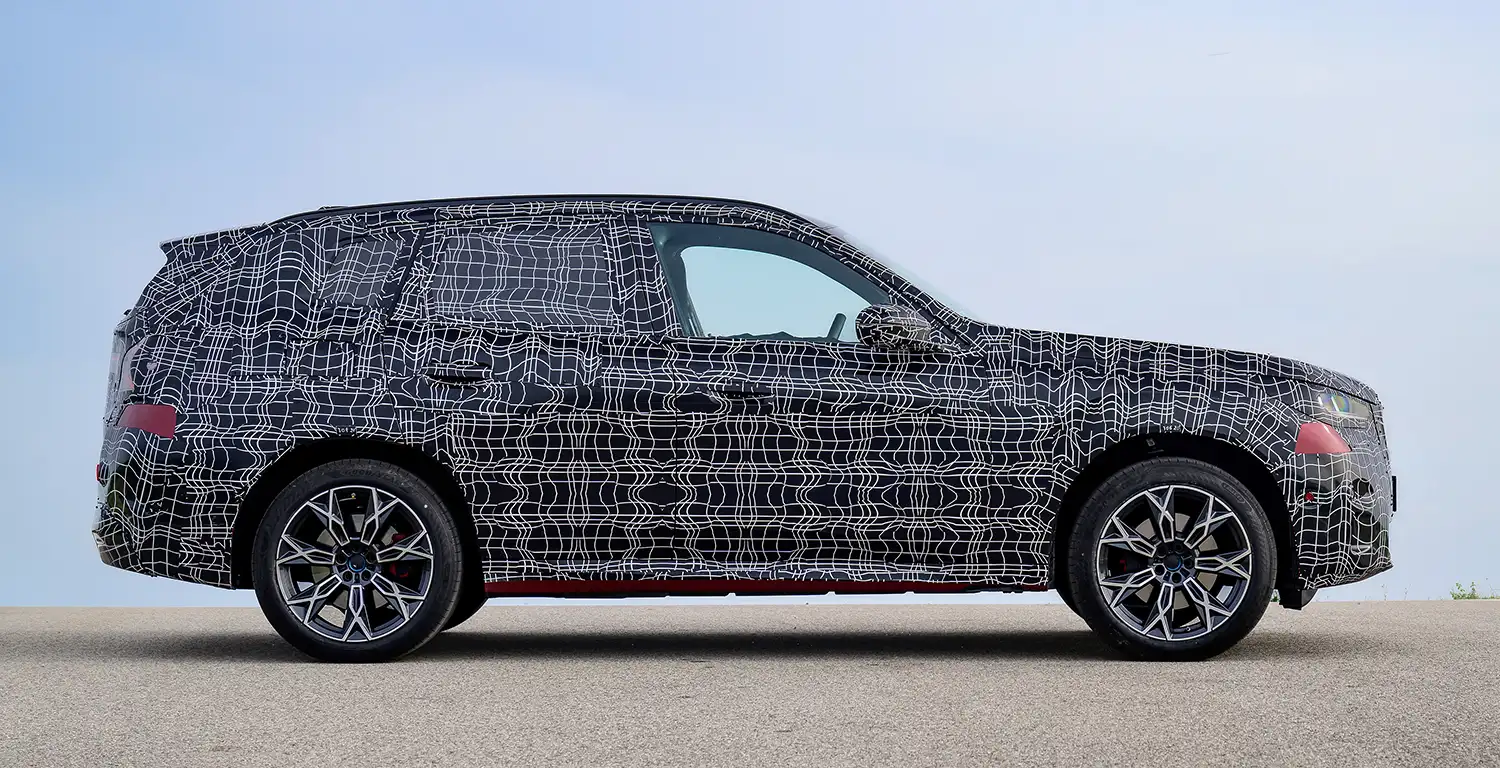
Automated driving is also optimised by BMW’s typical level of integration.
The new BMW X3 features the latest BMW iDrive based on the BMW Operating System 9 including BMW iDrive Controller and offers a significantly expanded selection of systems for automated driving and parking compared to the predecessor model. With its standard equipment, it clearly exceeds the requirements of the Euro NCAP safety test. The particularly sensitive braking and steering interventions of the assistance systems compared to the competition are another example of the unique integration performance of BMW riving dynamics development. They enable harmonious interaction between driver and vehicle in every situation.
The outstanding functionality of all assistance systems is based on state-of-the-art sensor technology as well as software, processor and network technology. Highlights in the new BMW X3 include the Active Lane Change Assistant and the Parking and Manoeuvre Assistant, which allows the driver to control manoeuvres from outside the vehicle using a smartphone.
